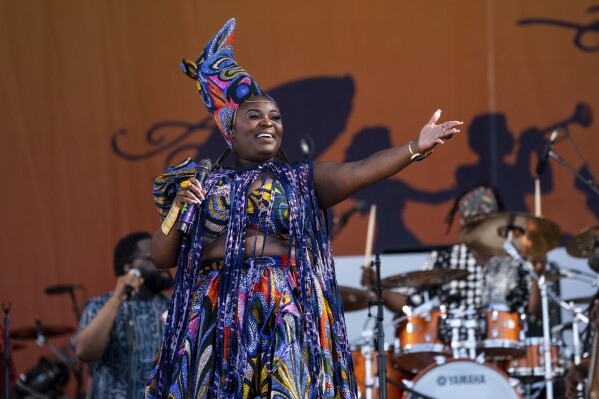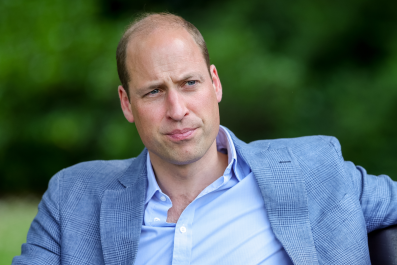Pat Hegarty was 57 when he first picked up a bass guitar. “Two years ago, my friends and I were in the pub after a game of five-a-side football,” he says. “We’ve been playing together for 20 years. One of the guys said, ‘let’s start a band!’ Pete and Dave already played guitar and drums; Steve is a good singer, so I was left with the bass, which I had to learn from scratch.”
Hegarty is an accomplished architectural designer, whose past work includes designing terminals for Virgin airlines and the conversion of a Soho office complex to an apartment building. “I was at a time in my life where I absolutely needed a new challenge,” he says. “My career is rewarding, but I fancied a new creative outlet: I used to be more uninhibited than I am now, and wanted to be able to feel that thrill again, to break through some boundaries.”
So the father of three boys agreed to teach himself the bass guitar. “And okay, I may have rheumatoid arthritis, my fingers may not stretch as far as they used to, but I thought I would give it a shot.”
Once every few weeks, the band pack up their instruments and jam in a variety of practice spaces in London, having a go at anything from the Cure to the Clash to Elvis. “We set up in a room and we make a lot of noise,” says Hegarty. “Some of the songs are quite difficult, so we take a song and make it our own, adapting it to our capabilities. It’s fun and funny and a real outlet – we just go for it.”
Hegarty’s band don’t have a name, and they haven’t (yet) performed for an audience: a prospect Hegarty seems to find terrifying. “I know quite a few guys my age in bands,” he says. “Unlike us, some are quite earnest, writing their own music. Some have a lot of ambition and are quite shameless. I just spoke to my accountant: he’s just retired and plays in a band in Essex. He takes it very seriously.”
Welcome to the rock’n’roll world of the Dad Band. Because everywhere we look, midlife men are picking up their guitars and slouching onto the stage: from the frustrated maths teacher who plays Ska covers, to the Leicester-based professor of endocrinology proudly releasing an album of songs he has written himself. (“I love that Miles is in a band and am so proud of his talent, but it can be a bit wearing always having to be the groupie,” says his wife, Sarah Levy.)
Is forming a Dad Band just the latest iteration of the midlife crisis? After all, it’s cheaper than a red Ferrari and far more benign than launching into an affair and a messy divorce.
Sheri Jacobson is a psychotherapist and the founder of Harleytherapy.com. “Joining a band is a positive way of using the midlife experience,” she says. “It’s common to reach a point where people take stock, evaluate and realise that perhaps they’ve neglected certain areas of their personal or spiritual life.” Hence, we turn to hobbies, dance classes, and rushing around on bicycles in lycra. Or, as in this case, we make music with our friends. “It’s a positive way of using that emotion, therapeutic, invigorating and creative,” says Jacobson. “And no bad thing for the midlife ego.”
How better to exemplify the – er – creative and invigorating genre, than Centrist Dad, the band formed by Labour shadow chancellor Ed Balls and ITV political editor Robert Peston? Badged as “middle-aged men who yearn for a return to the 90s… and are middle of the road like their politics,” Centrist Dad played their first gig at a Camden Town street party last summer, with Balls, 57, on drums, Peston, 64, singing, and two other friends on bass and guitar.
“Dads are supposed to be embarrassing and over the years I’ve overachieved,” said Balls at the time. A review described the performance as “surprisingly punk” with Peston singing to assembled fans: “I am an anti-Christ, I am an anarchist.”
At the more serious end of Dad bands is Homeland actor Damian Lewis, who recently revived the musical interests of his youth to record with American jazz musician Giacomo Smith. After a few packed London gigs, in March 2023, Lewis, 53, released his album, Mission Creep, which was well received by critics.
Lewis recorded his album in lockdown, the starting point of many of today’s Dad Bands. According to UK music, a million adults took up instruments during lockdown, with sales of digital pianos and guitars rising by 80 per cent.
For Jamie Sweetman, a 50-year old Liverpudlian now living in Queens, New York, lockdown was the impetus to start a band with his neighbours. “Before the pandemic, we were an informal gathering of mates who drank at Flynn’s, the local pub,” he says. “We would sit in the corner. Anyone who had an instrument would come along and join in. I would sing: I’m hopeless with an instrument. When I was a kid, I was just a skinny kid with a trombone. But I come from a family of songbirds. My aunt Diane got to the quarter-finals of Opportunity Knocks.”
In the latter parts of the pandemic, where outside gatherings were allowed, Flynndig, as the band was now called, played in the local park. “Then it got a bit noisy, what with the 7 subway train and the riots of summer 2020,” says Sweetman, who is a stay-home dad. “As soon as people were allowed back inside, we started a regular, monthly gig night”. The band crystallised a bit with the engine room of teacher Arthur Schupbach and production director Quinn O’Sullivan, both on guitar – “but from time to time, Lenny, Mike, Adam, Paul and Sam join in,” says Sweetman. “We even had this girl who looked like Janis Joplin show up one day.
“On one level, we are just old men singing at the back of a pub,” says Sweetman. “But we treat the songs with care. We play themed sessions: last month, for example, there was the British Invasion, with songs from Bowie, the Animals, and the Beatles. We’ve had places and theme nights, and for four years in a row, we’ve played the whole of Neil Young’s album, ‘Tonight’s the Night’. We never charge for people to watch us: we aren’t looking to monetise this.” The pub’s walls are covered with memorabilia and flyers from the 60s to modern day, often curated by O’Sullivan, whose company dresses the windows for places like Macy’s, Saks and Tiffany.
Sweetman feels that Flyndigg’s monthly soirees are part of the neighbourhood’s bounce-back after the pandemic. “This community, Sunnyside, is like a gift,” he says. “I arrived here from the UK 20 years ago not knowing a soul, except for Dawn, the woman I moved to New York to marry. Then I walked into this pub, and was welcomed by Paul Flynn, the landlord. He was from Southport and, like me, an Evertonian.” Flynn died suddenly and prematurely in 2021: hence the monthly music nights mean even more to the Sunnysiders.
“I’ve made such great friends through my music: I want to be in the same nursing home as these lads,” says Sweetman. Indeed, Flynndig has become a family affair, with Sweetman’s teenage children, Riley and Lulu, often coming along to join in.
To psychotherapist Sheri Jacobson, it’s this idea of community that underpins the appeal of the midlife Dad Band. “People have always used music and song as a way of connecting on a deep and primal level,” she says. “These things are very instinctive. Back in the day, we used to sing in choirs, the rock band is just a modern version of this. It’s community focussed, a regular, rhythmic meet-up – a really life-affirming experience.”
Indeed, music has been scientifically proven to affirm people’s lives, and even improve their health as they enter their later years. According to a study published earlier this year by Exeter University, playing a musical instrument or singing could help keep the brain healthy in older age, helping people sustaining good memory and solving complex tasks.
Pat Hegarty has certainly found that learning the bass is benefiting his metal wellbeing. He regrets not taking lessons in lockdown, and is entirely self-taught. “At first I was nervous about it, but if I have a go daily, I really feel like I’ve accomplished something,” he says.
“What you can achieve on the internet is amazing. I hear a song, I wonder: ‘how is that played?’ Then I look it up on the web and copy the chords. Sometimes I have to slow the speed right down to see what the fingers are doing. Yes, it can be tricky - some of those Elvis songs are surprisingly complicated! - but the fun is in trying to work it out. It’s a discipline: it’s like a puzzle.”
Hegarty also finds that while he’s playing the bass, he no longer thinks about his rheumatic fingers. ‘It’s incredible: I can totally forget about the pain, it’s a total distraction,” he says. “For an hour, I am completely transported. The world is getting increasingly serious, and playing music with my mates takes me away from all of that. But most of all, it’s just fun.”
Disclaimer: The copyright of this article belongs to the original author. Reposting this article is solely for the purpose of information dissemination and does not constitute any investment advice. If there is any infringement, please contact us immediately. We will make corrections or deletions as necessary. Thank you.




